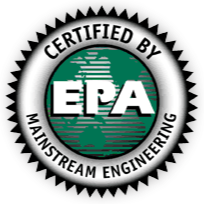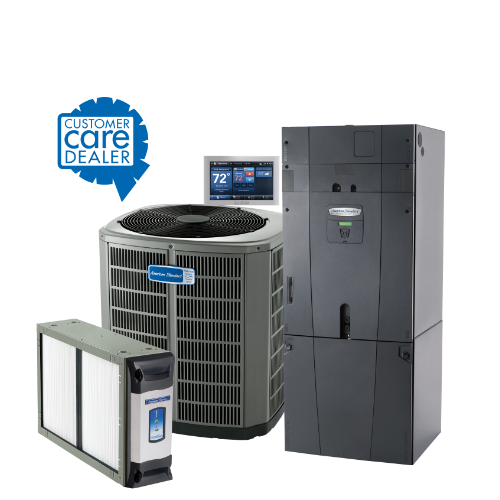What do HVAC Energy Efficiency Ratings Mean?
If you are in the market to upgrade your home’s heating and cooling system, you may be looking for a new model that is more energy efficient than your current model.
Fortunately, there is great news when it comes to HVAC energy efficiency! There are numerous models available that comply with established industry guidelines, as well as additional options that exceed energy efficiency minimum requirements. With
What is a SEER Rating?
The SEER rating, or Seasonal Energy Efficiency Ratio, is one of the easiest ways for you to determine the efficiency of a particular system. At one time, the minimum requirement in the U.S. was 8 SEER, but this has recently increased to 14 SEER. SEER ratings typically range from 14 to 21. The higher the SEER rating, the more efficient the system is.
Let’s compare the operation costs between different SEER ratings. A model with a 6 SEER rating will cost you on average over $1,000 in annual operating expenses. An American Standard System with an 18 SEER rating, on the other hand, will amount to, an average, only $333 in annual operating costs. This particular upgrade to a more efficient system adds up to 67 percent in savings for annual energy expenses.
What is a Good SEER Rating for an Air Conditioning System?
You will find many new units with a SEER rating between 14 and 17, and some units have a SEER rating of 21 or higher. The higher the SEER rating, the higher the upfront cost of the unit in most cases. However, your investment will pay for itself in lower energy costs throughout the year. You will need to decide what your initial budget is for purchasing your system, and you will need to decide if you prefer to save money now on a less efficient system or save in the long run through lower energy costs.
Keep in mind that other factors will affect a system’s energy efficiency as well. For example, you will notice that each unit has a BTU rating. BTU Ratings relate to how powerful the air conditioning unit is, which tells you how large or small of a space it was designed to heat or cool.
When you purchase a system, use a BTU chart to ensure that you are buying a unit that has suitable power capabilities for your specific space to ensure maximum energy efficiency.
Contact Us
Call Climatech of Professional Air for a New Energy Efficient HVAC System Climatech of Professional Air are experts when it comes to energy efficiency. If you are in the market for a new HVAC system or want to learn more about energy efficiency ratings, contact us today. Our team of technicians and professionals are always ready to answer any heating or cooling questions you may have. Call us at 850-968-2161, or email us at [email protected] to get started today.












